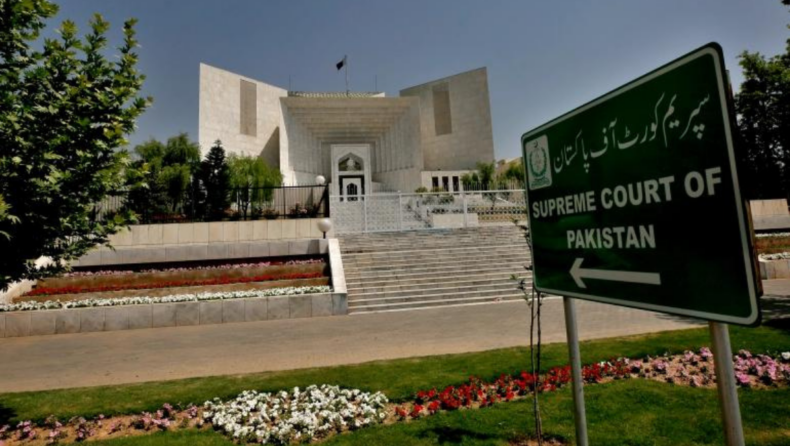Pakistan’s Supreme Court on Thursday reinstated the no-confidence motion against embattled Prime Minister Imran Khan, overturning Deputy Speaker Qasim Khan Suri’s April 3 verdict and the consequent dissolution of the National Assembly. Imran Khan will now face a no-confidence vote on Saturday (April 9).
Pakistan’s supreme court stated in its judgement that the Prime Minister was bound by the Constitution and hence could not urge the president to dissolve legislatures, according to Pakistan’s Geo News.
Additionally, the judgement declared President Arif Alvi’s decision to dissolve the National Assembly “illegal,” with all five judges voting unanimously against it, Pakistani tabloid Dawn said.
‘State’ of Instability
Pakistan has reached a condition of political instability when the Deputy Speaker of the National Assembly refused to allow a no-confidence vote against Prime Minister Imran Khan.
Following that, Pakistani President Arif Alvi dissolved the House of Commons and agreed to Khan’s demand that new elections be held within 90 days.
At the Supreme Court, Pakistan’s opposition parties swiftly contested the Deputy Speaker’s decision to dismiss the no-confidence motion brought against him.
Pak Supreme Court’s Judgement
Earlier in the day, while hearing a petition on whether Imran Khan and his allies had the legal right to dissolve parliament, Chief Justice of Pakistan (CJP) Umar Ata Bandial stated that Suri’s order dismissing the no-confidence motion against the former Prime Minister was “erroneous.”
Additionally, Chief Justice Bandial stated that the controversial decision to dismiss a no-trust motion against Khan is prima facie a violation of Article 95 of the Constitution. “The real issue is what happens afterwards. We must consider the national interest,” he had stated.
The statements came shortly after a five-member bench led by Chief Justice Bandial took up the case at approximately 9.30 a.m. on Thursday.
Senator Ali Zafar, who was defending President Alvi, was questioned by the Bench on whether the prime minister was the people’s representative and whether the “Parliament was not a custodian of the Constitution.”
Additionally, the Supreme Court questioned the President’s attorney as to how a constitutional crisis could occur if everything was proceeding according to the law of the land. The CJP questioned whether the federal government’s establishment was an “internal business” of Parliament.
Meanwhile, Pakistan’s electoral commission announced on Thursday that it would be unable to hold snap elections within 90 days, as asked by the president, and that the earliest possible date would be October.
“The Election Commission though completely committed to hold elections would however require at least four additional months,” the commission’s statement said, according to a Reuters report.
India’s Position on the issue
Pakistan’s political upheaval has elicited no response from India, which has stated that it is a “internal matter” of that country. However, the country has stated that it is closely monitoring developments in Islamabad.
“This is something that they are dealing with internally.” I don’t have anything to say about this. “We are keeping an eye on it, but we do not comment on internal problems (of any country),” said Arindam Bagchi, a spokesman for the Ministry of External Affairs and International Cooperation.
Published By: Manan Khurana
Edited By: Subbuthai Padma













